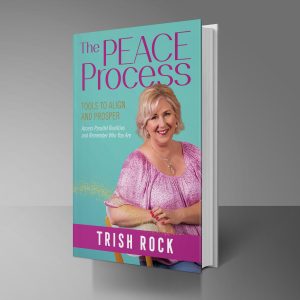Good Sleep And Emotional Well-Being: How To Get Better Sleep
You would be a rare bird indeed, if you didn’t know what it is like to feel sleep deprived. You will surely recognize the signs and symptoms that indicate a lack of sleep: bags under the eyes, tired, groggy, and grumpy, possibly short-tempered and irritable, achy and stiff.
Those days when you drag around wishing that you could just lie down and relax without any distractions or responsibilities!
Do you even remember the last time when you slept well?
When did you last have a deeply restorative and relaxed sleep that left you feeling refreshed, rejuvenated, and content to open your eyes to start the day?
Does the idea of a good night’s sleep sound like a fairy-tale? You probably have children! OR a business that keeps your mind racing with new ideas or solutions!
Or maybe work is stressing you out or you have financial or relationship issues. Whatever the cause of your insomnia, lack of sleep is seriously impacting your overall well-being. The science behind it shows that sleep affects your physical, mental, and emotional health. Sleep deprivation can impair your ability to make decisions and can seriously affect your emotional stability, contributing to depression and even suicidal ideation.
You may feel angry, sad, or impulsive and suffer from mood swings.
Here are some strategies for healthy sleep, which can substantially improve your emotional well-being, decreasing your levels of irritability and depression, and leaving you feeling livelier and more optimistic.
- Set an early bedtime. Aim to get 7- 8 hours of sleep.
- Make a sleep routine a habit and stick to it.
- Chamomile tea can help you relax, but don’t drink too much fluid late in the evening.
- Avoid alcohol in the evening.
- Avoid any caffeine in the afternoon. That includes chocolate.
- Avoid sugar.
- Set your alarm so that you wake the same time every day, even on weekends. A routine like makes it easier to maintain a balanced sleep pattern.
- Exercise regularly to discharge excess energy.
- Maintain a healthy diet.
- Turn off all your electronic devices a least half an hour before you go to bed. Even a light from your phone can upset the melatonin levels in your brain. Melatonin helps regulate your sleep cycles.
- Establish a relaxing bedtime routine.
- Only use your bed for sex and sleep. Don’t take your work to bed with you.
- Practice meditation before bed. It helps you relax and studies show it does improve sleep and feelings of well-being and relaxation, which will increase your chances of sleeping deeply.
- Put on a relaxation audio before you sleep.
- Practice gratitude before you fall asleep. Think of one hundred things you are grateful for. You will fall asleep with a smile on your face, feeling blessed and content!
Lack of sleep can really bring you down, impacting your emotional well-being, leaving you sad, and irritable, with a lower than usual tolerance threshold. Learning a healthier sleep regime can increase the quality of your sleep.
Even if you only do half of what is on this list you will see improvement in your overall sleep patterns and well being.
Avoiding stimulants, creating a regular routine, waking up the same time every day including weekends, and going to bed early for 7-8 hours per night, can really help. A healthy diet and regular exercise can help you get better sleep. Creating a space for relaxation including practices such as meditation and gratitude before you sleep will also help.
Turn off any technology at least half an hour before you sleep. Make sure all lights are off or hidden, including alarm and cell phone light. Use your bed only for sleep and sex. With all these strategies in place, you should be sleeping like a log!
Connect With ME Here: trish@trishrock.com
Work With Me Here: Intuitive Energy Breakthrough




